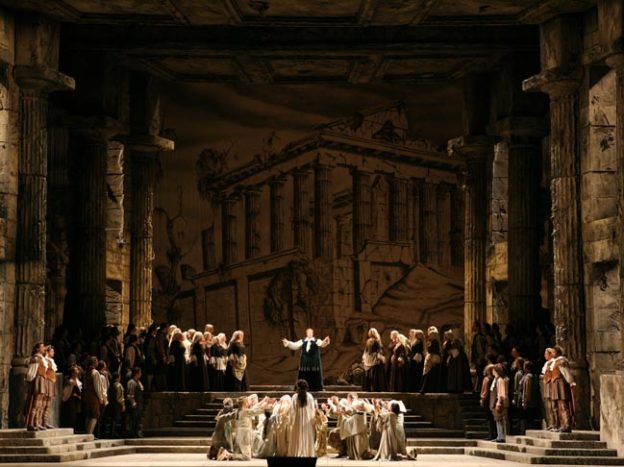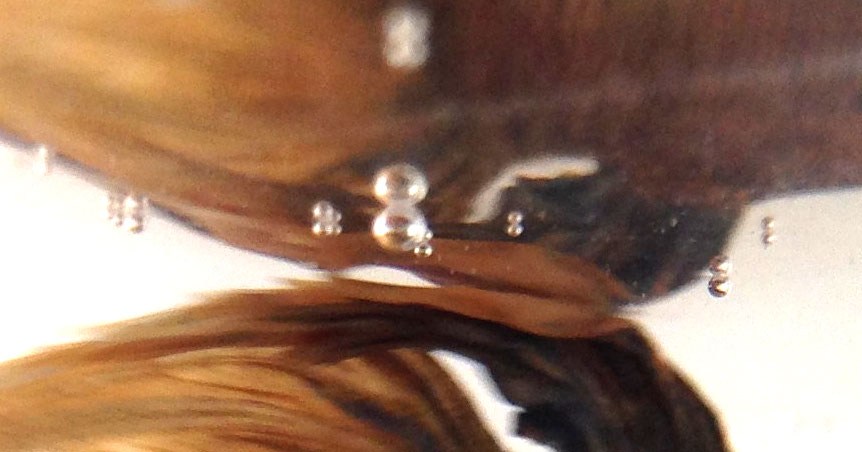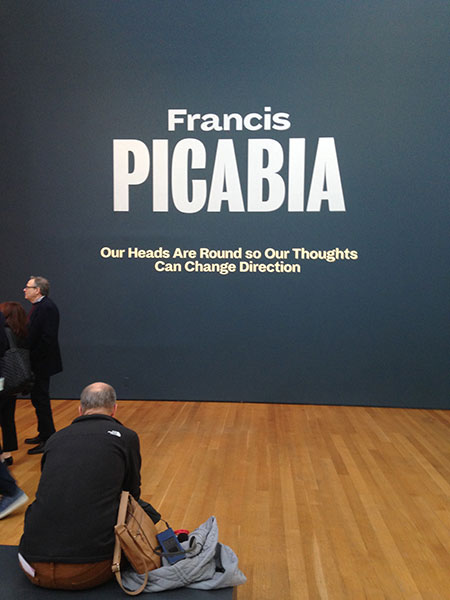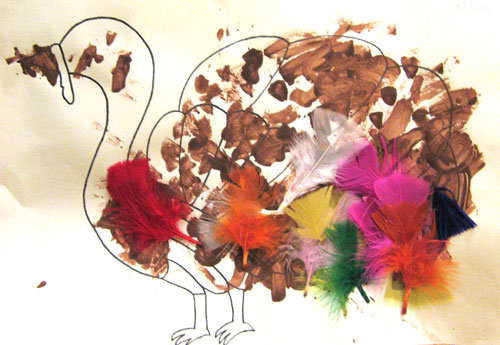We’re down to the wire on the book cover and I need help deciding. Please leave a comment and vote for your favorite version. Extra credit for reasons why you like it.
Thank you!

We’re down to the wire on the book cover and I need help deciding. Please leave a comment and vote for your favorite version. Extra credit for reasons why you like it.
Thank you!

The other day I was on Twitter (shut up, it was work related) and I noticed that a friend’s Twitterscope happened to also be my Twitterscope. It said:
You shift from being okay to not okay and back in just a few minutes. Although this may be confusing to you, it can be truly disconcerting to others. Consequently, it’s smart to keep your mood swings to yourself until they settle down. Be patient; you will gain clarity in the days ahead.
To which I said, Screw you, Twitterscope. It’s not about me. I never knew what I was walking into – a love fest or a hornet’s nest.
This horoscope advice from the planets came on the heels of my own realization that things were topsy turvy in a particular area of my life. One minute I was doing everything right. The next minute I was doing everything wrong. My moodswings? I don’t think so.
As luck would have it, every time things were going badly I’d come home and the kids would be louder/messier/slower/stickier than usual because they can tell when I’m at my wit’s end.
That’s when they put grape jelly in their hair. To make sure my love is truly unconditional.
Because I do love them unconditionally, I try to practice a little of the horoscope advice. I focus on the “be patient” part.
I can do that much. Doing the be patient part helps me realize they don’t just get jelly in their hair because I’m stressed out. Things like jelly happen all the time, but when my head needs help it throws my game.
When my head is okay, I get out the hose and am done with it. So it’s not that they’re being less loud/messy/slow/sticky normally. It’s that it doesn’t always affect me. I don’t make it part of my experience. It looks like I go from okay to not okay and back because of what the people around me are doing, when really it’s how I am handling my interpretation of what they’re doing.
It’s always an inside job.
If it’s true of my jelly-crusted children, it’s true of the hornet’s nest. I can’t control the actions of others, but I have every right to not make them part of my own reality.
The Dalai Lama, who totally knows about such things, said “When our minds are clouded by hatred, selfishness, jealousy, and anger, we lose not only control but also our judgment.”
It’s funny, isn’t it, that the wanting to be in control is what actually makes us lose control?
Be patient and you will gain clarity. Fight it and you just make it more real. It’s true on the mat and it’s true in life.
Isn’t it great that we have so many many many chances to practice this every single day?
If you focus on what’s not working or get angry with yourself, your kids, your breakfast drink, whatever, then that’s what becomes more real and that’s where your day goes. If you can let go, you can be right where you want to be.
As I was writing this, three kids spilled three glasses of chocolate milk. It was like some kind of test. Because I was writing this and I didn’t want you to see what a hypocrite I am, I handled all three spills with patience.
It seemed like good practice for when the hornets start buzzing again. Maybe I’ll learn that even the hornets are just a bunch of big kids with bad hand-eye coordination. Maybe I’ll realize that their loudest buzzing is about needing unconditional love, and it’s not directed at me at all.
Maybe, when that promised clarity comes, I can get this jelly out of my hair – and resume my love affair with Twitter.
This column was originally published in The Magazine of Yoga. Reprinted with gratitude.

In March we listened to operas you can go and see, and congratulated the fabulous bass baritone, Sir Bryn Terfel, recently knighted by the Queen. Here he is in Don Giovanni – an Opera Betty reader favorite:
Boston Lyric opera is doing a stunning job of bringing us all up to speed on Stravisnky’s The Rake’s Progress, on stage now through March 19. Before you go to the opera you can learn all about it on their website blo.org.
We played a some of The Rake’s Progress on the radio, but go ahead and take some time to explore BLO’s videos. I love this one:
There are two Met Opera HD broadcasts happening between now and the next Radio Betty. The live broadcast of La Traviata was Saturday, but you can probably still catch an encore.
The next Live in HD broadcast from the Metropolitan Opera is Mozart’s Idomeneo on March 25th.
If you like the story of Aida but wish it had a happier ending, this may be the opera for you. It’s also terrific because the story is from Greek mythology so there’s a sea monster and an unfortunate promise to Neptune.
First, the backstory: Helen has been carted off to Troy by Paris, and various Greek kings join forces to lay siege – including Idomeneo of Crete. Instead of postcards, Idomeneo sends Trojan captives home to let them know of his imminent return. One of those captives is Princess Ilia, the daughter of King Priam which I think makes her Paris’ sister but don’t quote me. The ship she was on sank because that’s what happens to ships in Greek mythology, but Ilia was rescued by Idomeneo’s son, Idamante . They fall in love.
Of course, it’s complicated. There’s the whole “your dad took me captive” part, plus, Elettra is already in love with Idamante. Elettra, who you may know as Elektra, is the one who helped her brother kill their mom in revenge for the murder of their dad, Agamemnon. Remind me sometime to go down the rabbit hole of operas involving all these people. It will be so fun.
Elettra lives in Crete now, since she was forced to flee Argos.
Ilia is falling in love with Idamante but realizes that holiday family gatherings will be a bummer since his father is a sworn enemy of her people. Idamante is holding down the fort until his dad gets home, so he frees the Trojan captives to show her they’re not so bad after all.
Meanwhile, Idomeneo is drowned in a shipwreck.
But wait! He doesn’t drown because he makes a deal with Neptune, who saves him. In return for his life, Idomeneo promises to kill the first person he lays eyes on when he gets to dry land. Unfortunately, that person is his son. Because, mythology.
Trying to figure a way out of sacrificing his son, Idomeneo sends Idamante to escort Elettra back to Argos. Elettra hopes the trip will work out for her and Idamante , except that just as they’re getting ready to leave, a storm kicks up and a sea monster appears. Idomeneo admits that it’s his fault the island is being attacked by a sea monster but refuses to sacrifice an innocent human. He tries banishing Idamante who still doesn’t understand why his dad’s being so mean.
Idamante agrees to be exiled, not having any idea why, so it is time for he and Ilia to finally admit that they are in love.
Idomeneo has to give up the name of the person he’s supposed to kill and everyone is terribly sad as they prepare the sacrifice. Idamante meanwhile kills the sea monster, but understands that a deal is a deal and is ready to be sacrificed to save Crete.
Ilia offers to take his place, which is maybe why Neptune reconsiders and, just as Idomeneo is ready to kill his son, makes a counter offer. If Idomeneo steps aside and gives the throne to his son and Ilia, they’ll be Even Steven. Everyone but Elettra rejoices. The chorus sings and they all eat cake and sea monster sushi. The end.
Opera Betty is on WOMR the second Sunday of every month at noon, Eastern time.

When a guest breaks something in our friend’s house, she tells them to make a wish. She says nine out of ten people say they wish they hadn’t broken the thing, and I say if ten people are running around your house breaking things you need to rethink your guest list. She tells me that’s not the point. Inviting them to make a wish turns breakage into a whole different kind of tradition – like wishing on a necklace clasp when it turns to the front, or driving through a yellow light.
I don’t do that. When I hear something break in my house I say “Was it the green one? My mom bought that when she was in high school. She kept an African violet in it when we were growing up.” Or whatever.
I don’t think of it as a guilt trip; I think of it as a eulogy. Having a mini Celebration of Life for a broken object is not something I do on purpose. It’s a reaction to the object’s life flashing before my eyes. Many of the things we have, especially the breakable ones, have rich and full lives during their tenure.
Don’t tell our things, but sometimes it’s a relief when they break. With great stories come great responsibility. And dust. I am a champion discarder, but there are some things I can’t bear to get rid of. You don’t realize how heavily a story weighs on you until it’s dispelled with a crash.
The last time we broke a piece of pottery (a favorite tea bowl that came from an art fair in Burlington, VT), I buried it in the yard to dissuade rats from tunneling into the chicken coop. I’m not sure if it’s working, but I do like to think of what future archaeologists will think when they find it.
If it surfaces, I hope the person who digs it up gives it a history – and makes a wish.

For Christmas we were given a hydroponic aquarium. It’s one of those things that you either love or send a thank you note that says “why would you do this to me?” People give us these things from time to time – things that make your kitchen explode or cover your bathroom in vegetable dye. We tend to love them.
The aquarium is designed to grow micro-greens on top while purifying water for the fish below. It comes with everything except water and a fish. Shortly after Christmas Chris took Sugarplum to the pet store in the big city where she picked out Antler.
Bettas are beautiful fish. I have had a few over the years and loved their grace and vivid splendor. They come in these crazy colors, as can be seen in a simple Google image search:
You can imagine my surprise when Antler came home and turned out to be a natural brunette like the rest of us. Out of all the fish, my daughter picked the beige one. That’s really nice, I thought. She brought home the one no one was going to buy.
“He’s Antler,” she said. “He’s supposed to be brown.”
We grew radish greens and wheat grass, most of which we ate or juiced before they turned to brown sludge. We replanted when the first seeds were spent and experimented with different greens with varying degrees of success (read: failure).
Things were going great. The fish was happy, the plants were happyish, and then the aquarium went from passable to an omg-where’s-the-fish? bucket of slime in less than 12 hours. The parallels between Antler and life in our house just never let up.
I went back to the fish store and bought a net and a sponge shaped like a fish because obviously you need a sponge shaped like a fish. I also picked up more food.
Antler does not eat just any fish food. Or maybe he does, but he’s doing great on what came with the Water Garden so I figured we should stay with what’s working. The thing is, the kind he eats come in two versions: regular and color enhancing.
I have puzzled over his color a few times since his arrival. For a little while I thought he might be a juvenile and hadn’t settled on a color yet. Like baby eyes. But could it be all Antler needs is color enhancing fish food?
I agonized over this decision longer than is sane. Antler is Antler. He is supposed to be brown. We love him and let’s face it, the chances of him attracting a mate in our dining room are slim.
Which is a shame, because he is seriously handsome.
Eat your greens. Live your life. Be your own fish.

We took an actual vacation.
We had a friend come to the house and take care of everything while we were gone, including feeding our chickens and Antler the hydroponic fish. We did not ask him to take care of Hazel because Hazel is a lunatic and we were not 100% sure she would let our chicken sitter in the house. This is fine for the chickens as they only come in occasionally, but Antler would have pitched a fit.
Hazel was a rescue pup and I wonder sometimes if the places where you leave your dog to go on vacation are reminiscent of where you leave your dog when you just go. So Hazel went to the spa.
When we signed her up we spread the brochures out on the kitchen floor and talked about how it was a place where she could claim her own experience in a supportive, nurturing environment. It was a time to connect with her inner puppy, spark her creativity, and find her peace deep within. We were all really excited about the retreat, including Hazel. Which is to say she at no time peed on the brochures.
Studley went with me to drop her off and was fully invested in the process. So invested, in fact, that he signed her up for all the extra menu items, spa treatments, and relax & renew mind/body workshops while I was in the restroom.
With all the animals accounted for, we went off to New York and walked 175,000 miles. We went to the Cloisters, the Metropolitan Museum of Art, the Guggenheim, the Tenement Museum, The Museum of Modern Art, The Whitney, the Museum of Natural History, and the Breuer Museum.* We went skating in Central Park, walked the Highline, and went to the Late Show with Stephen Colbert. We ate 500 things and then had Indian food delivered because we could.
When we got home we picked up Hazel who now smells like kombucha. And I have to say, as great as it is to collapse from museum fatigue daily and have food delivered to your door, getting hugged by a dog is better.
*Sugarplum and I spotted the Breuer on our way home from consignment shopping, cruised the gift shop and had mochas in the cafe. Stop judging me.
Given the season, I’ve found myself exploring politically inspired themes. I had a lot of material to chose from – so many operas have been – and continue to be – inspired by political situations.
“Scalia/Ginsberg” is a new opera by Derrick Wang. According to an article in Salon, “Justices Antonin Scalia, with his devotion to the Constitution’s original meaning, and Ruth Bader Ginsburg, more willing to adapt the Constitution to changing times, were ideological opposites and longtime friends with a mutual love of opera.”
I couldn’t find a recording or video for “Scalia/Ginsberg,” but for once I have an actual excuse to play something from “Nixon in China.” I think this particular selection is especially timely. “News has a kind of mystery….”
According to Tim Ashley’s opera guide in the Guardian, Jurgen Flimm’s 2004 Zurich Opera production of Beethoven’s “Fidelio” emphasizes that “the opera is not only a demand for freedom and individual dignity, but is also a reminder of the lengths to which we must sometimes go in order to achieve them.”
Following the 2008 election, Guerilla Opera came out with Curtis Hughes opera “Say it Ain’t so, Joe,” about the vice presidential debates between Joe Biden and Sarah Palin. The opera is described as a musical re-imagining of the 2008 Vice Presidential Debate, along with glimpses of other contemporaneous events and figures – with some fantastical digressions. It goes on to say that it’s not about Palin and Biden as real people, so much as about their public identities as constructed in the imaginations of the American people. It’s intended to evoke the subjective experience of watching the debate, including some emotional twists and turns and musical reflections on the nature of political speech. The libretto is adapted from public records – so the dialog will seem eerily familiar.
There was also an opera about Canadian Prime Minister Brian Mulroney, by Dan Redican. Its premiere was described as an epic failure, but it’s short, sweet, and judging from the trailer, worth the watch.
Also worth the watch is the upcoming movie of Margaret Atwood’s “The Handmaid’s Tale.” The opera version of “The Handmaid’s Tale” by Poul Ruders premiered at the Danish Royal Opera in 2000.
And let us not forget “Powder Her Face,” the explicit opera by Thomas Adès about the “Dirty Duchess”, Margaret Campbell, Duchess of Argyll, whose sexual exploits were the stuff of scandal and gossip in Britain in 1963 during her divorce proceedings. I played the overture on the radio, just to be safe.
Then of course there’s Boris Godunov. Boris comes out of the gate with everything I love about Russian opera. I love the traditional melodies, the bells, the heaps of choruses and the sound of the Russian language. It’s the story of Boris Godunov, obviously, who became tsar when someone had Ivan the Terrible’s heir, Dimitry, killed as a baby. We’re not saying who.
Opera means many different things to many different people, says a New York Times review. One meaning with a long history is “opera as musically accompanied declamation,” which is how ”X (The Life and Times of Malcolm X)” by Anthony Davis struck a reviewer in its formal world premiere at the New York City Opera. X “falls into the category of message theater, and by definition its message will not appeal to all who hear it.” See what you think:
A new opera by Mohammed Fairouz opened at Washington National Opera earlier this month that may or may not be about Trump. According to a Washington Post article, in “The Dictator’s Wife” the attractive wife of an authoritarian political leader bemoans the challenges of her position.
Recordings of “The Dictator’s Wife” are not yet available, but there are about 16 pages of other videos by or featuring Fairouz. This is the rabbit hole I went down:
And then of course there’s the whole Trojan war, summed up nicely in In Les Troyens
In a show about political operas I can’t not play something from “Satyagraha,” by Philip Glass. “Satyagraha” is about Gandhi’s years in South Africa, where he developed non-violent protest, or Satyagraha. In Gandhi’s words:
“Truth (satya) implies love, and firmness (agraha) engenders and therefore serves as a synonym for force. I thus began to call the Indian movement Satyagraha, that is to say, the Force which is born of Truth and Love.”
I’m sorry you can’t see it, but the music is some of my favorite:
There has been quite a lot of talk about who will and will not be playing at the inauguration. In a tweet, Charlotte Church announced that she had declined, followed by some choice emojis. I find it funny that the only thing I have by her is the evening hymn from Hansel and Gretel. It’s lovely.
When at night I go to sleep,
Fourteen angels watch do keep,
Two my head are guarding,
Two my feet are guiding;
Two upon my right hand,
Two upon my left hand.
Two who warmly cover
Two who o’er me hover,
Two to whom ’tis given
To guide my steps to heaven.
Sleeping sofly, then it seems
Heaven enters in my dreams;
Angels hover round me,
Whisp’ring they have found me;
Two are sweetly singing,
Two are garlands bringing,
Strewing me with roses
As my soul reposes.
God will not forsake me
When dawn at last will wake me.

Thanksgiving was not always my favorite holiday.
Growing up, I thought Thanksgiving was about radishes cut like roses and juice glasses rimmed in confectioner sugar. It was a high-tension affair so full of aesthetic requirements we could barely see the pumpkin pie at the end of the tunnel – which is a shame because my mom does indeed make the world’s best pumpkin pie.
After three decades of tense perfection, I married into a family who ran a soup-kitchen style Thanksgiving.
Nothing was decanted into serving dishes and brought to a linen, crystal and silver bedecked table (did I mention there were only four of us, growing up?). Dishes were served up in my mother-in-law’s kitchen and guests – as many as felt like coming – found a seat on the couch.
Everyone wore stretchy pants instead of Sunday finery.
For years I thrived in the soup kitchen of my new family. And then one day I began to crave the dignity of my own family traditions.
What I had seen as empty and tension-fraught displays were actually beautiful expressions of gratitude.
Thanksgiving affords an opportunity to take the process of preparing, serving and eating out of the commonplace. On Thanksgiving we treat our guests to the best we have.
When we garnish a plate, we don’t do it to be better or fancier or to make more work for ourselves – we do it as a gesture of love and respect. It is an offering. When’s the last time you saw a Styrofoam take-out container at an altar?
When I say we give the best of what we have, I do not mean crystal glasses and silver serving dishes (although if you have them, this is the time).
My mother-in-law opened her home to everyone she knew. Her best was a generous heart and a large collection of forks.
When we iron our impossibly long linen table cloths and polish our impossibly black silver candlesticks, we do it in the spirit of gratitude, not tedious obligation. The process of preparation is like a prayer – in which radish rosettes are rosary beads.
When ritual loses its fundamental meaning and becomes a series of things we do, the prayer part goes missing, taking the blessing with it.
“Thanksgiving” is an in-and-out kind of word. It inhales thanks and exhales giving. It can’t only do one, or it will pass out in the turnips.
Here’s my secret recipe for Thanksgiving: I invite no one who is likely to judge me.
If my napkins are not perfectly pressed, my guests are not apt to care. I invite my family because I love them, and I invite friends because I love them too. If friends are away from family or have no tradition of their own, they have a place at my table.
I shine up the best of what I have, make my favorite recipes and lay it all out like an offering.
Thanksgiving is every day. On this one Thursday, however, we pull out all the stops. We give thanks for what we have and honor the people in our lives. It is not an obligation, it is a gift. And we do it with joy in our hearts and, in a perfect world, mom’s pumpkin pie in our bellies.
May your Thanksgiving be blessed. May your table be full. May your heart be satisfied.
Happy Thanksgiving.
This column originally appeared in The Magazine of Yoga
If you have considered dropping out of society and living as an ewok, I found your training camp. I think there are a bunch of ewok training camps, but the one near us is the Adventure Park at Heritage Gardens, described on their website as an “amazing aerial adventure forest.”
I imagined it as a meditative walk through the forest canopy on a birch walkway, surrounded by chirping birds and whispering leaves, punctuated by zip lines. The human version of this zen xylophone, if you will:
It’s not like that. It’s like this:
Which is not to say it isn’t tremendously fun. It is. You are in a safety harness clipped to a cable from beginning to end, so there is no danger of plummeting to your doom. You just worry about things like dangling from your cable, weeping gently until help arrives should you fall. (They say you just pull yourself back up. I did not test this claim.)
I was only paralytic with fear once, in a segment that turned out to be one of the easiest stretches. Isn’t that often the way? It was a modified zip line, and once I muted the “I can’t do this I can’t do this I can’t do this” voice, it was over before I knew it. Other stretches were not so simple. Imagine crossing a river stepping from stone to stone, but instead of being in the river you are 20 feet above it and instead of stones, it’s a series of trapezes. Good times.
Not only is it a lovely way to spend time in nature, it’s a total workout. Under normal circumstances it would take some athletic ability, but under my personal circumstances it required tensing every muscle in my body for 2.5 hours. Which is funny, because it turns out I do this stuff all the time.
Fun fact about me: I am a complete lunatic about foraging for food. Not mushrooms, mind you. I read Babar and know what can happen. But I am game for nearly anything else: fiddlehead ferns, blackberries, wild blueberries, cranberries, beach plums, rose hips – anything I can find. There was also the time I nearly killed my family with what I thought were chestnuts, but we’ve moved past that.
So today I remembered the blackberries were ripe. The berries in the easy to reach spots were disappointingly slim, but Sugarplum had mentioned a whole bunch in a bush she couldn’t get to. Sure enough, it was thick with giant berries, ready for picking. Not even the birds had made the required effort.
I have sustained bodily damage foraging before (usually related to poison ivy), but the possibility of falling into a blackberry bush with branches as thick as my arm had never occurred to me.
It still hasn’t.
I am the Kung Fu Panda of aerial adventure forests. I can’t jump from one suspended log to another or catch a fly with chopsticks, but by golly I can catch a dumpling in mid air and I most certainly can balance on a wobbly log if it helps me reach the top branches of a blackberry bush.
Just think what I could do with a harness.

La Bohème is stupidly famous because who doesn’t like an opera about garrets and poets and coughing? It is pronounced “Lah Boe-EM” and means “Bohemia.”
Rodolfo, Colline and Marcello are friends. Rodolfo is a poet, Colline a philosopher and Marcello a painter. They are a trifecta of monetary disfunction. The opera opens on Rodolfo, burning pages of his writing to keep warm. Schaunard, their musician friend, arrives saying he’s landed work. They all go out on the town with promises from Rodolfo to join them.
Mimi arrives, saying her candle has “blown out.” Rodolfo lights her candle (not a euphemism, yet) and sends her on her way but it “blows out” again and then she “drops her key” and there’s some groping in the dark and singing and lo and behold the next thing you know they’re in love.
They leave to go join the others and Rodolfo buys her a bonnet which she will probably have to burn later to keep warm.
At the cafe, Marcello’s ex, Musetta, arrives with her sugardaddy, Alcindoro. Musetta sends Alcindoro off on some errand and they all have a splendid time and leave him with the bill.
In act 3 Mimi confides in Marcello that she wants to leave Rodolfo because he is so horribly jealous. Shortly after, Rodolfo talks about dumping Mimi because she’s so fickle and flirty and we’re all “wha…? When was she fickle and flirty? She hasn’t done anything but cough.” This is because there was an act 2.5 and we missed it. In act 2.5, the librettist wrote a scene where Musetta introduces Mimi to a Viscount and Mimi is indeed fickle and flirty. Who can blame her? She’s broke and dying and Rodolfo is kind of whiney. The scene didn’t make the cut and no one bothered to proofread the rest of the libretto.
Rodolfo then admits that the real reason he wants to leave Mimi is that she is sick and probably dying and he is too poor to take care of her and is probably, in fact, making her sicker with his poetry. She overhears this and rushes to Rodolfo. They decide to stay together until spring or until one of them gets a paying gig, whichever comes first. Spoiler: it’s spring.
Later, the three friends are doing whatever it is they do in their garret when Musetta rushes in and tells them Mimi is dying. They all run around like chickens, trying to help, but she dies anyway.
Again with the spoilers. Sorry.
I hesitate to add that La Bohème was the basis for Jonathan Larson’s Rent.

There’s a Bible story about a man who was sitting at the Pool of Bethesda, waiting for the spirit to move the waters so he could jump in and be healed.
Jesus sees this guy and says “wilt thou be made whole?” And the guy says, “There’s no one here who will help me get in the pool first and, doggone it, someone else always jumps in first.”
Which did not answer the question.
I have to admit, I’d probably do the same thing.
For instance, if someone (including but not limited to Jesus) walked up right now and said, “wouldn’t you prefer a kitchen that works?” I would most likely rattle off all the reasons we can’t do a kitchen remodel right now and then I’d go into great detail about all the things that are wrong with our kitchen and the next thing you know, I’d be on that very kitchen floor, weeping inconsolably.
I can’t remodel our kitchen because there are eleven hundred external factors standing between me and new cupboards – factors I have no control over. I don’t do anything because all these other things have to align first and… does anyone see them aligning? No.
What it boils down to is an external versus an internal thing. There’s a lot out there we can’t control. Let external factors dictate your life and you’re toast.
It’s also a will versus want thing.
I have trouble paraphrasing “wilt thou be made whole” because we don’t use “wilt” except for lettuce these days.
In our modern language, we say “want,” which does not necessarily mean what we think it means.
If you look it up, definitions include “to be needy or destitute,” “to feel the absence of,” “to suffer from lack,” etc. So if you say “do you want a functioning kitchen” I hear “do you feel the absence of a functioning kitchen?”
Which, please, have you seen my kitchen? Blech. You bet I feel it. And here are my excuses for why it will stay that way.
According to the Free Dictionary, will is defined:
The mental faculty by which one deliberately chooses or decides upon a course of action.
When we deliberately choose a course of action, we relinquish hopelessness. We decide it will be better.
We do things, little things, to make it better. We clean hinges so the cupboards close. We discard unused kitchen tools. We are no longer paralyzed, waiting by the Pool of Bethesda.
I haven’t actually done this with my kitchen yet.
I figured I’d try it out on you first.
I started thinking about this a couple years ago as I lay in a heap on my living room floor, observing a crack in the ceiling.
It didn’t make sense to fix the crack and paint the ceiling because it would happen again when the roof leaked again. We couldn’t fix the roof because… honestly I don’t remember why we couldn’t fix the roof.
I was so frustrated and disheartened. I knew I had to think differently about my home.
I wanted my home to be whole. I decided my home would be whole.
I began doing things, little things, toward this goal. The little things snowballed and became big things. Despite whatever our insurmountable reasons were, we did eventually fix the roof. Little by little, our home has been made whole (with a few glaring exceptions).
There are so many things we can apply this to – and when I say we, I mean my family. You can apply it too, of course.
Will you, your home, your career, your relationship be made whole?
Answer the question. No excuses.
This column originally appeared in The Magazine of Yoga

.jpg) Today’s radio show on WOMR was about Gian Carlo Menotti’s madrigal fable “The Unicorn, the Gorgon and the Manticore”
Today’s radio show on WOMR was about Gian Carlo Menotti’s madrigal fable “The Unicorn, the Gorgon and the Manticore”
In a recent conversation about opera people and how weird we are, a friend asked if I ever played Menotti on the show – who you may know from such smash hits as Amahl and the Night Visitors. I hadn’t, so I did a little homework and found this one – which would have been perfect if only he had added a kraaken.
If your gripe is that opera is too long AND you can’t understand it, then perhaps The Unicorn, the Gorgon, and the Manticore is for you. It’s in English and is remarkably easy to follow along – unlike John Adams, where you’re all “surround the plutonium core from 32 points spaced equally around its surface….” WHAAAAAT?
Because unlike John Adams’ Dr. Atomic, this opera is not about the testing of the first atomic bomb.
The Unicorn, the Gorgon and the Manticore is a madrigal fable, telling a story – in English – with musical interludes thrown in for good measure. In addition to being great pets, the unicorn, gorgon, and manticore are allegories for three stages of the poet’s life.
The opera begins with the chorus (probably the townspeople) describing the poet as an oddball who lives in a castle and doesn’t hang out with them very much. He doesn’t even go to church. For a second you think it’s a liturgical-sounding version of Bluebeard’s Castle, but then instead of luring a new wife to her doom, he takes his unicorn for a walk. The contessa then must have a unicorn, and all the other townspeople follow suit.
The next week, the poet takes his gorgon for a walk through town. In case you’ve forgotten what a gorgon is, Medusa was one. Everyone assumes he offed the unicorn and replaced it with the Gorgon so that’s what they do, too. I hope you didn’t book a trip to their town that week, what with all the Gorgons and all.
The next week he appears with a manticore instead of the gorgon, so everyone offs their gorgons and there’s a run on manticores at the shelter. If again you have forgotten what a manticore is, it has the body of a lion, the face of a man, and the tail of a dragon.
And then the man doesn’t go for a walk at all. Not with so much as a hamster. So the people storm the castle. They find the poet and all three of his housepets at the castle. Not only has he not killed them, but he is the one who is dying, surrounded by the creatures of his fancy.